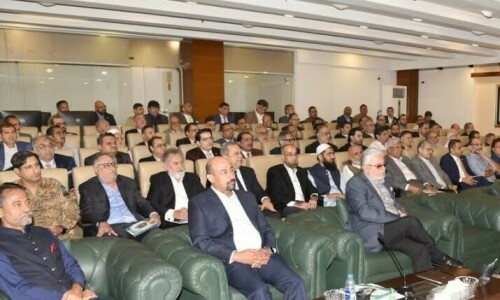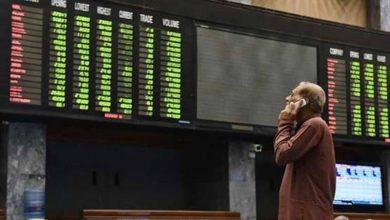SIFC advised to focus on investment climate

KARACHI: As Pakistan pursues various options to attract investment, especially foreign direct investment (FDI), the Pakistan Business Council (PBC) has advised the Special Investment Facilitation Council (SIFC) to focus on transforming the investment climate.
In a letter, PBC chief executive Ehsan Malik urged the council to address fragmentation and silo working of key ministries to ensure long-term predictability of policies.
Prospective investors look at the experience of existing investors. He said nothing is more off-putting than knee-jerk, short-term changes that render investments under previous policies unfeasible.
Ehsan added that when local businesspeople shy away from investing, foreign investors are hardly likely to be enthusiastic. He advocated restoring the sanctity of longer-term plans for which Pakistan was once a model for Asian tiger economies.
The PBC chief also advised the SIFC to focus on FDI in export-oriented sectors and those that reduce reliance on imports, especially of food items. While Middle-East investors could bring capital to fund investment in imported plants, technology would still need to be sourced from elsewhere.
Malik warned that unless the investment climate improves, foreign investors’ high-risk perception will result in short payback periods, with today’s inward investment turning into net outflow very quickly. For this reason, he advocated caution in pursuing news headlines on FDI.
He pointed to a colonial-era regulatory overload, with slow and non-transparent decision-making on smuggling, under-invoicing, misdeclaration of imports, counterfeiting, misuse of Afghan transit trade, and concessions to Fata/Pata, which combined to create a perfect storm to undermine the industry.
He said there is an absence of an industrial policy with no clear focus on priority areas. Special Economic Zones that are yet to transform from talk to walk, energy tariffs that are now twice those of the region, and the high cost of borrowing are some of the other factors that need attention.
“Heavy taxation of salaried employees is resulting in loss of talent as people either are moving abroad or switching jobs to the informal sector to evade taxes,” Ehsan said.
At a time when we reach out to foreign investors, our own investors are moving abroad, some even surrendering their nationality, due to a poorly conceived capital value tax that remains contested in the Supreme Court. This results in very little tax revenue for the country, he said.
Mr Malik emphasised the negative impact of a predatory tax regime, which puts a disproportionate burden of taxes on industry. With super tax and tax on dividends, the effective tax rate on shareholders of companies can reach 68 per cent.
He added that the government’s weak political will, FBR’s capacity and capability constraints to broaden the tax base, and the IMF’s short-term, front-loaded revenue targets result in higher taxes on the already taxed.
Published in Dawn, May 7th, 2024
Follow Dawn Business on Twitter, LinkedIn, Instagram and Facebook for insights on business, finance and tech from Pakistan and across the world.





